Философские идеи Людвига Витгенштейна - [63]
Now we must think about the second possibility, i.e. the possibility of a reduction of theoretical propositions to the truth-functions of the propositions, which are the configurations of the simple signs representing objects. The members of Vienna Circle tried to accomplism the reduction of this sort without success, as is well known. But Wittgenstein never tried to do this and didn's discuss such possibility in the "Tractatus". He wrote about scientific theories and its statements: "All propositions, such as the law of causation, the law of continuity in nature, the law of least expenditure etc., etc all these are a priori intuitions of possible forms of the propositions of science" (6. 34). What are "a priori intuitions of possible forms of propositions"? Anything but not the pictures of facts. Hence, by definition, they can't be senseful propositions. "Newtonian mechanics, for example, - Wittgenstein continues - brings the description of the universe to a unified form. ...Mechanics determine a form of description..." (6. 341). If so, it cant't be a picture of reality by definition of a picturing relation. So, the propositions of mechanics are senseless, too.
There are some direct evidences in support of the thesis that Wittgenstein sees the theoretical propositions of science as senseless. They can be found, for example, between the notes, taken by Fr. Waismann. So Wittgenstein have said: "Ein Naturgesetzt lasst sich nicht verifizieren und nicht falsifizieren. Vom Naturgesetzt kann man sagen, dass es weder wahr noch falsch, sondern "wahrscheinlish" ist, und "warscheinlish" bedeuted dabei: einfach, bequem. Eine Aussage ist wahr oder falsh, nie wahrscheinlich. Was wahrscheinlich ist, ist keine Aussage" (Waismann Fr. Wittgenstein und der Wiener Kreis. Oxford, 1967. S. 100). "Die Physik konstruiert ein System von Hypothesen, dargestellt als ein System von Gleichungen. Die Gleichungen der Physik konnen weder wahr noch falsch sein" (Ibid. S. 101).
So, the theoretical propositions of science violate the condition of being senseful propositions. They are not the descriptions of facts, hence they have no sense (for the sense is the fact modelled by proposition). Theoretical propositions are conventions more or less useful and simple. Strictly speaking, they are not propositions at all, because they don't satisfy the condition of bipolarity.
Hence, the scientific theories don't belong to the "total natural science", as described in (4. 11). This sound rather paradoxically. Nevertheless this does follow from Wittgenstein's own definition of a true proposition. Wittgensteinian treatment of scientific theories might be understood as his answer to the situation of the scientific revolution which had refuted such respectable scientific views as Newtonian mechanics, atomism, theory of aether in their role of the descriptions of reality. So, Wittgenstein treats scientific theories as conventions. They cannot be neither true nor false. Hence, there are no epistemological problems of their justification. In contrast with the members of Vienna Circle, Wittgenstein doesn't care about verification of scientific theories or elimination of theoretical terms because he doesn't believe that theories need some epistemological foundation or justification of their truth. They need not, becauce they are in reality pseudopropositions.
All that has been said pose a problem regarding Wittgenstein's treatment of philosophical propositions. Most of them are senseless, he says. But so are most of the scientific propositions, as we have seen. And even more: propositions of mathematics violaty the condition of bipolarity too, so they are pseudopropositions. The law of logic, as Wittgenstein says, are without sense (4. 461). (Though he doesn't call them senseless). He states that "tautology and contradiction are not pictures of reality" (4. 462).
II
We have seen so far that scientific theories, mathematics, logic are situated outside the sphere of senseful propositions. We have discovered therefore that a number of Timportant and respectable intellectual activities generate senseless propositions. No wonder that Wittgenstein writes a treatise on philosophy confessing that its propositions are senseless. Contrary to what is often said, it is not a full-size paradox. Wittgenstein realizes the significance of various propositions violating his conditions of being a senseful proposition.
How can we understand then Wittgenstein's attack upon philosophical propositions and problems that are not false but senseless? Why does he attacks philosophy and doesn't attack physics or mathematics? As we have seen, the senselessness cannot be an explication here, - or, at least, it cannot be a full explication. We need something else to explain this.
Phycical laws and hypothesis are not senseful propositions, but they are devices for generating such propositions. They serve to provide us with them. Hence, they are auxiliary to the sphere of senseful.
About mathematical propositions it is written in the "Tractatus": "In life it is never a mathematical propositions we need, but we use mathematical propositions only in order to infer from propositions which do not belong to mathematics to other which equally do not belong to mathematics" (6. 211).
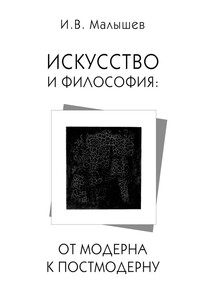
Сборник статей доктора философских наук, профессора Российской академии музыки им. Гнесиных посвящен различным аспектам одной темы: взаимосвязанному движению искусства и философии от модерна к постмодерну.Издание адресуется как специалистам в области эстетики, философии и культурологи, так и широкому кругу читателей.

Санкт-Петербург - город апостола, город царя, столица империи, колыбель революции... Неколебимо возвысившийся каменный город, но его камни лежат на зыбкой, болотной земле, под которой бездна. Множество теней блуждает по отражённому в вечности Парадизу; без счёта ушедших душ ищут на его камнях свои следы; голоса избранных до сих пор пробиваются и звучат сквозь время. Город, скроенный из фантастических имён и эпох, античных вилл и рассыпающихся трущоб, классической роскоши и постапокалиптических видений.
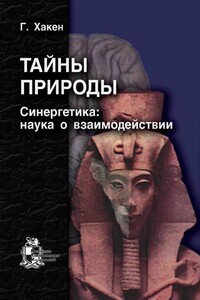
Книга представляет собой перевод на русский язык знаменитой «Тайны природы» Германа Хакена. Ее первейшая цель — донести до читателя идеи синергетики, позволяющие познать удивительные, необычайно разнообразные, организованные структуры, созданные самой природой. Для самого широкого круга читателей.
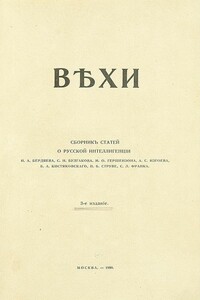
ВЕХИ. Сборник статей русских философов начала XX века о русской интеллигенции и её роли в истории России. Издан в марте 1909 г. в Москве. Получив широкий общественный резонанс, к апрелю 1910 г. выдержал четыре переиздания общим тиражом 16000 экземпляров. Михаил Осипович Гершензон. ПРЕДИСЛОВИЕ Николай Александрович Бердяев. ФИЛОСОФСКАЯ ИСТИНА И ИНТЕЛЛИГЕНТСКАЯ ПРАВДА Сергей Николаевич Булгаков. ГЕРОИЗМ И ПОДВИЖНИЧЕСТВО Михаил Осипович Гершензон. ТВОРЧЕСКОЕ САМОСОЗНАНИЕ Богдан Александрович Кистяковский.
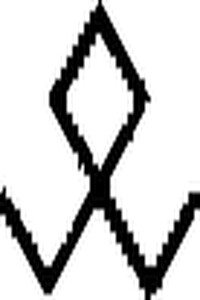
Первое издание на русском языке в своей области. Сегодня термин «вождь» почти повсеместно употребляется в негативном контексте из-за драматических событий европейской истории. Однако даже многие профессиональные философы, психологи и историки не знают, что в Германии на рубеже XIX и XX веков возникла и сформировалась целая самостоятельная академическая дисциплина — «вож-деведенне», явившаяся результатом сложного эволюционного синтеза таких наук, как педагогика, социология, психология, антропология, этнология, психоанализ, военная психология, физиология, неврология. По каким именно физическим кондициям следует распознавать вождя? Как правильно выстроить иерархию психологического общения с начальниками и подчиненными? Как достичь максимальной консолидации национального духа? Как поднять уровень эффективности управления сложной административно¬политической системой? Как из трусливого и недисциплинированного сборища новобранцев создать совершенную, боеспособную армию нового типа? На все эти вопросы и множество иных, близких по смыслу, дает ясные и предельно четкие ответы такая наука, как вождеведение, существование которой тщательно скрывалось поколениями кабинетных профессоров марксизма- ленинизма. В сборник «Философия вождизма» включены лучшие хрестоматийные тексты, максимально отражающие суть проблемы, а само издание снабжено большим теоретическим предисловием В.Б.
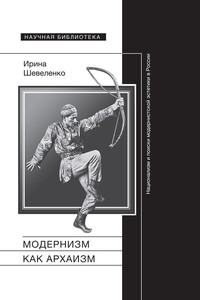
Книга посвящена интерпретации взаимодействия эстетических поисков русского модернизма и нациестроительных идей и интересов, складывающихся в образованном сообществе в поздний имперский период. Она охватывает время от формирования группы «Мир искусства» (1898) до периода Первой мировой войны и включает в свой анализ сферы изобразительного искусства, литературы, музыки и театра. Основным объектом интерпретации в книге является метадискурс русского модернизма – критика, эссеистика и программные декларации, в которых происходило формирование представления о «национальном» в сфере эстетической.